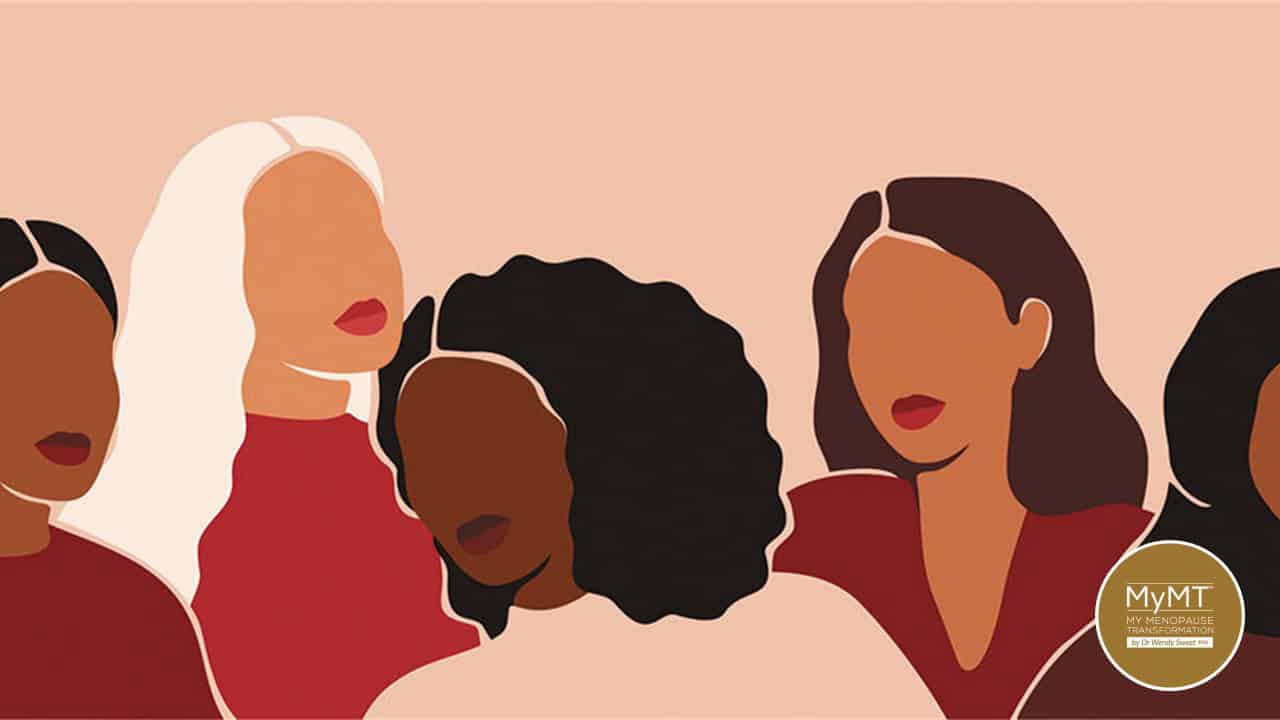The article arrived in my inbox this week … a call to action for menopause to become normalised. Afterall, the authors argued, “menopuse is a natural event for half of humankind.” [Hickey et al, 2022].
The medicalisation of menopause fuels negative perceptions about this life-stage, shared the authors. My own experiences came flooding back to me. “Sore joints are normal in menopause” said the physio. “You can expect some weight gain in menopause” said the Personal Trainer, “but we will work it off” (my body gave up in an exhausted, sweaty, despairing mess when the 15kg didn’t budge). “Would you like to try HRT and anti-depressants?” mentioned my persevering and caring Doctor.
“The medicalisation of menopause as a disease requiring ‘treatment’ prepares women to expect the worst” writes Martha Hickey and colleagues in their article, ‘Normalising Menopause‘ (2022). However, menopause is experienced in different ways globally. So, when menopause is only shown as a period of decline and dysfunction, then this may risk women’s attitudes towards it.
The findings of this latest study resonated with me. This was a similar perspective that I wrote about in my doctoral studies about women’s ageing. Which is why this brand new article caught my attention this week, and I wanted to share it with you. Reflecting on your menopause transition and how you are looking at this life-transition, is an important topic.
In their study discussing the need to normalise menopause, the authors contend that at present, the menopuse symptom and intervention narrative is not balanced. This imbalance results from the dominant narrative which positions this life-event in the decline and disease narrative. At best, the authors argue that the medicalisation of menopause “risks collapsing the wide range of experiences associated with this natural process into a narrowly defined disease requiring treaatment.” (p. 1).
If this negative narrative was balanced out with alternative narratives, then perhaps any stigma relating to the menopause transition will better prepare women for expected changes and allow then to have a wider recognition that menopause is a natural process with both positive and negative aspects.
I couldn’t agree more.
My own studies on women’s health and ageing took away the confusion of menopause for me personally. When I learnt that women from different cultures experience menopause in different ways in terms of symptoms, I became curious about this stage of life.
Women living in Western countries report more symptoms than those from non-Western cultures. Understanding this when I was so confused about my own menopause mayhem, left me wondering what menopause is and how, the way we live our life and have lived our life in the past, might impact on our symptoms.
Understanding that menopause is a pivotal part of our life-course when viewed through the lens of ageing science, helped me personally to de-mystify the complexity and medicalisation of it. However, I also discovered that our experiences of this transition are shaped and constructed both culturally and socially.
When I was trying to understand why I wasn’t sleeping, why I was experiencing hot flushes, why my body-shape was changing rapidly and why, oh why, I was suddenly feeling that my muscles and joints were aching and my moods were all over the place, I turned to menopause and healthy ageing research. I felt ‘old’ before my time and as I was in my early 50’s, this did not seem to add up at all.
That’s when I asked myself two questions:
- Why do women’s experiences of their menopause transition differ physically, geographically and culturally?’
- How do we turn our current symptoms around so that we experience healthier ageing?
As I untangled my own symptoms from insomnia to low energy, weight gain, sore joints and changing gut health, and explored the physiological causes and pathways of each symptom, I soon realised was that there was one common thread in all of my symptoms which was leading me towards the decline and disease narrative associated with ageing.
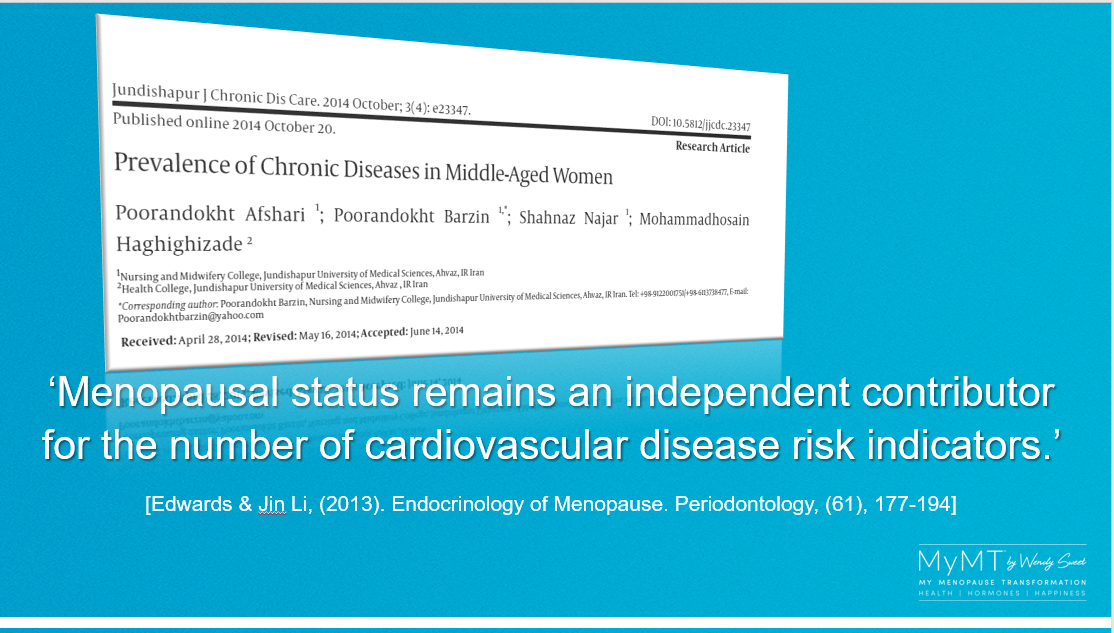
Menopause symptoms when un-resolved, may become the ticking time-bomb for our health as we age. Therefore, it’s not menopause per se, that is the ‘problem’, but when our reproductive hormones are changing, this impacts other hormones and systems throughout the body too.
But there’s more to this story as well. When you look at the effect of menopause on women living in higher-income countries, the average age is 51 years and symptoms are generally considered to be more prevalent compared to women living in middle and lower income countries. In some of these countries, the average age of menopause (when periods cease) is 46-48 years and symptoms differ from women living in western countries. For example, only 5% of Indonesian women reported hot flushes. (Hickey et al, 2022).
Much of this symptom difference relates to our lifestyle and the role of inflammatory changes as we age.
Hot flushes, sore joints, changing gut healht, fibromyalgia, high cholesterol, poor insulin regulation, high blood pressure, migraines, depression and increased body fat are conditions that link to inflammatory changes within cells and tissues. This is recognised in ageing research as ‘inflammaging’.
Because peri-menopause and menopause are increasingly being recognised as an inflammatory event and because of our modern, stressful lifestyles these days, one of our stress hormones called cortisol increases. For some of you, this rise in cortisol causes progesterone to go too low in relation to oestrogen.
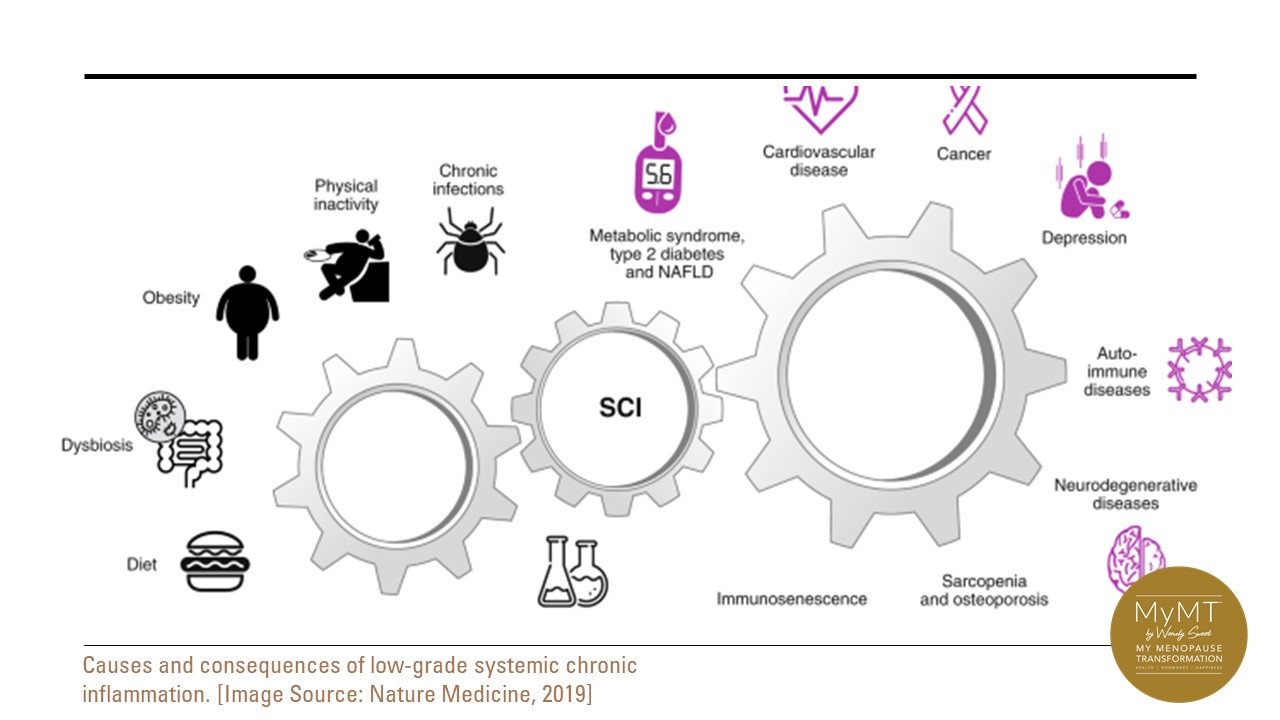
I didn’t know this until I began to understand that many diseases of ‘older age’ that our parents’ generation have experienced are due to the build-up of inflammation. When inflammation is present, the body goes into survival mode and our hormones try to re-adjust the internal balance to help us survive.
The more I read about menopause symptoms and connected this stage of our life with our reproductive ageing, the more I realised that we are the first generation of women to come through the rapid increase of changes to food, manufacturing, chemicals, plastics, as well as taking contraceptive and other medications. We’ve also experienced changing exercise types and intensities, with an increasing focus on competitive sports and of course, we mustn’t forget the challenges of increasing workloads and expectations in the workplace. Don’t even mention the additional stress of running a household too.
Therefore, it’s no surprise that by the time we get to menopause, our body has acquired some inflammatory changes that make our symptoms worse. On top of this, we also have the effect of low oestrogen and progesterone as we transition into post-menopause. This is our ageing, which changes the structure and function of some of our organs too.
Hence we can lose sight of what is ‘normal ageing’ or as Hickey et al (2022) contend, the normalisation of menopause if viewed through only the medical paradigm may get lost in translation. “Marketing menopause as a disease is lucrative business” suggest the authors, reinforcing this with the fact that in America alone, compounded bioidentical hormones accounts for up to 68% of all menopause hormone therapy with an estimated worth of $2bn. As such, “women who see this marketing might understandably believe that menopausal hormone therapy is important for maintaining long term health.” [p. 2, Hickey et al, 2022].
As I’ve written about on numerous occasions, understanding that our menopause transition is the ‘bookend to puberty’ can also help us to see menopause as a new beginning. This understanding led me towards looking forwards into my ageing years ahead and making changes to my lifestyle to counteract the negative narrative that I was ‘stuck in’ – especially when it came to the type of exercise I was doing, how I was eating and how to manage the stress, which throws menopause symptoms into chaos.
For example, viewing menopause symptoms through the lens of ageing is key – perhaps more important than dwelling on the anti-ageing, youthful messages which permeate throughout western societies, especially in fitness and dieting media.
When we see that menopause is part of our natural ageing, then we can better understand that this is a stage of life that is associated with multi endocrine (hormonal) changes, including those associated with changes in the structure and function of the adrenal gland. The changes of the adrenal gland that occur during ageing are associated with alterations in hormonal output, such as a gradual sustained, increase in the production and secretion of one of our stress hormones called cortisol.
The increase in circulating levels of cortisol in ageing individuals is of particular interest to women in menopause. Due to the impact of higher cortisol levels released from our ageing adrenals this impacts several systems, including cognition, anxiety, blood pressure, hot flushes and sleep, moods, and our recovery from exercise.
We all know that stress is a constant factor in modern life. The stress response in healthy organisms is aimed at maintaining the balance of biological functions, or homeostasis, when faced with physiological or psychological challenges, that may be real or even perceived. [Yiallouris, Tsioutis, et al, 2019]. But what happens when too much stress causes these biological functions to get out of balance?
This is why stress management matters to women during menopause. High cortisol levels can make our symptoms worse.
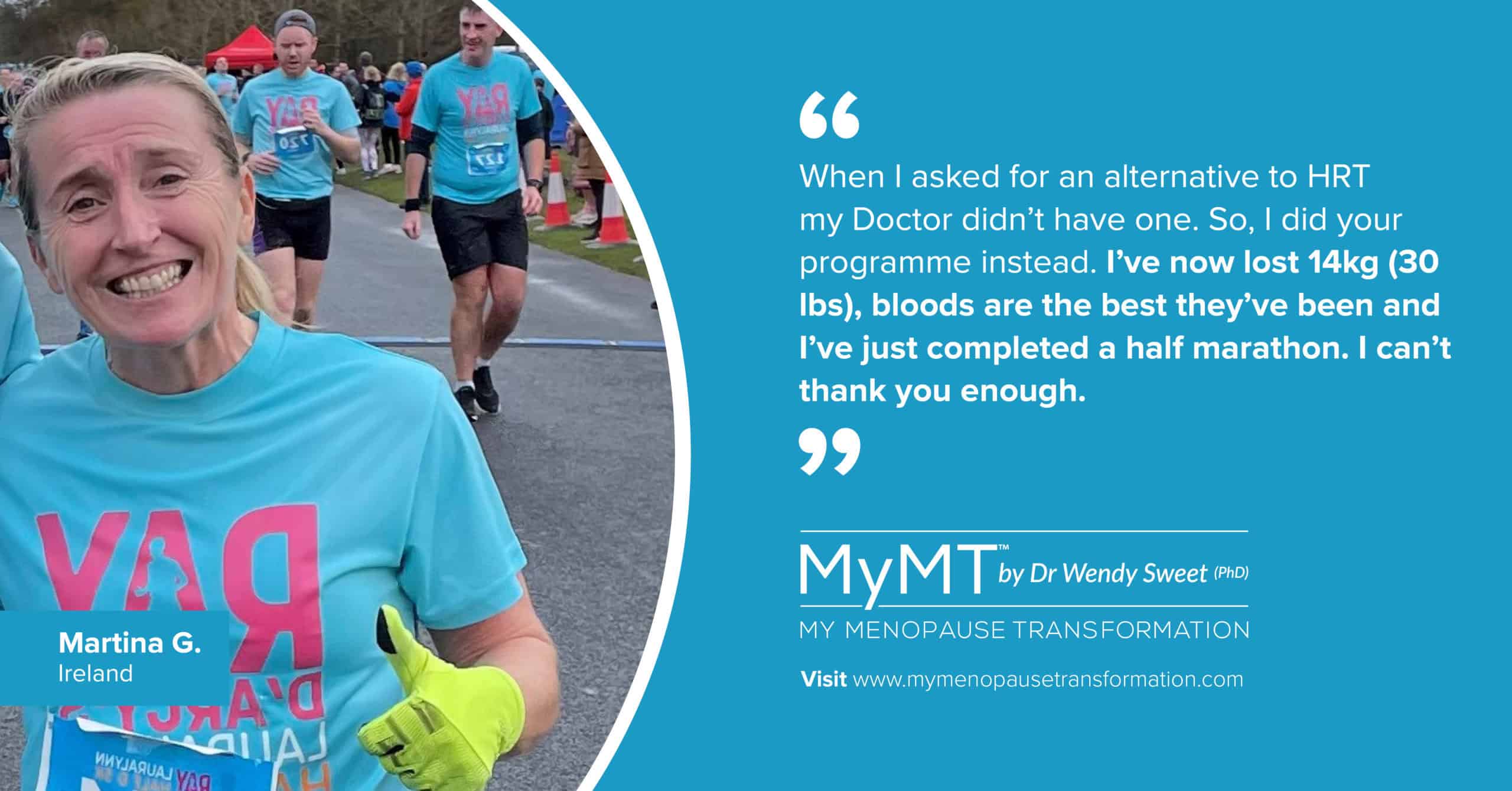
Because of the changes associated with our ageing adrenals during menopause, changing some aspects of our lifestyle matters. Part of this understanding about the link between stress, higher cortisol and our menopause symptoms, also requires us to think about the influence of our past lifestyle on our symptoms and/or weight gain too.
It makes sense to me that menopause and its symptoms are all part of our natural ageing. However, here’s the thing – how we respond to this stage of life feels quite ‘unnatural’. Diets, Hormone Replacement Therapy, and Supplements may all have a place in your journey, but taking into account the full picture is important as well.
Feeling better during menopause isn’t about oestrogen – our body is naturally trying to get rid of oestrogen. It’s about balancing oestrogen with progesterone as both these hormones decline naturally as we age. Stress and high cortisol can cause imbalance between oestrogen and progesterone levels as we move through menopause.
If our two reproductive hormones, oestrogen and progesterone, are un-balanced, then as women on the MyMT™ programmes discover, other hormones such as our thyroid, adrenal and pituitary hormones get out of balance too. When these hormones are out of balance, then this manifests as poor sleep, changing joint health, hot flushes, feeling bloated, feeling stressed, headaches and low energy.
On top of this, when we aren’t eating well, or have lots of old injuries, or we have experienced changes to our gut-health, liver, joints etc then, inside our cells and tissues, there are pockets of inflammation that just build up inside our body. The relatively new science of epigenetics tells us that the way we live our lives and have lived them in the past, can have an enormous impact on inflammatory changes in cells and tissues. Yes, our past lifestyle does matter!
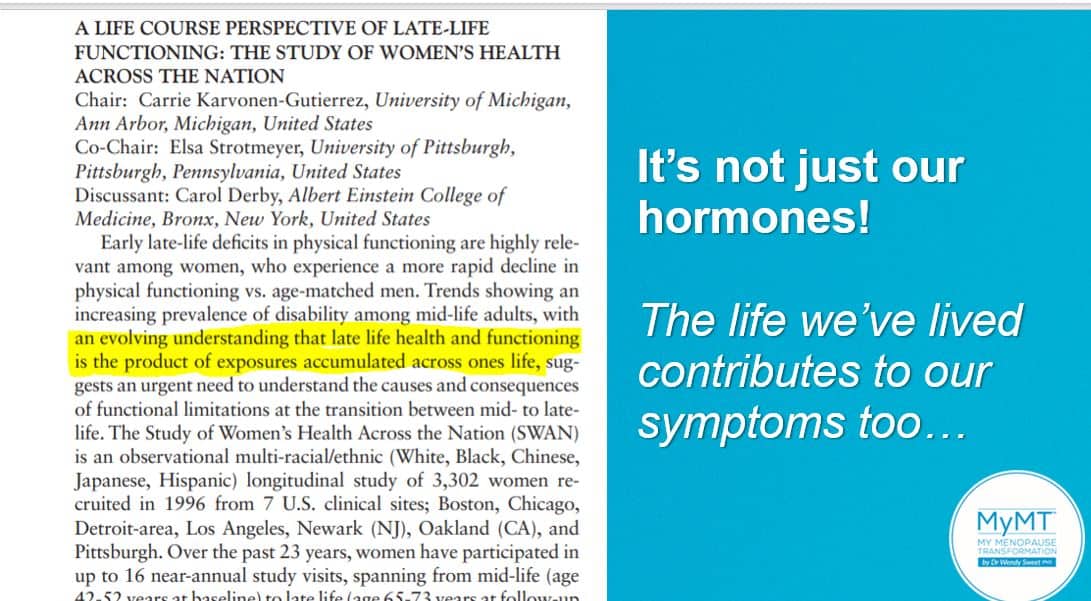


So, how do we get back to re-building ‘us’ and normalising menopause?
How do we live our life in a way that undoes all the inflammation, allowing our hormones to balance our health?
How do we change our daily habits when we are all so busy?
Here are my top three tips for you:
- Is the same old thinking, producing the same old results? Stop and reflect on why what you may have been doing to manage your health and symptoms, including your weight, may not be working for you any more.
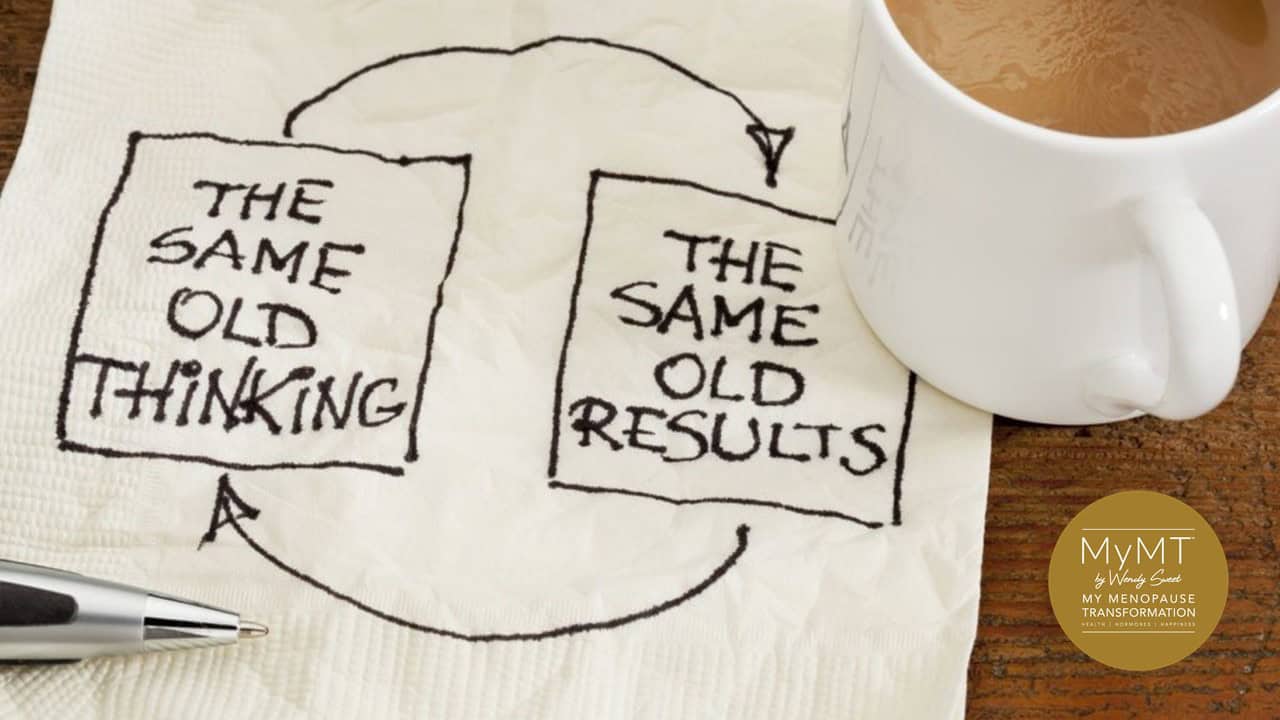
2. Are you relying on lots of menopause supplements without making changes to your dietary intake? If so, then remember that supplements are just that … ‘supplementary’ to your diet. Try changing to the Mediterranean Diet, which is evidenced for women’s health as they age, especially with regard to the changing nutrient requirements for cardiac health.
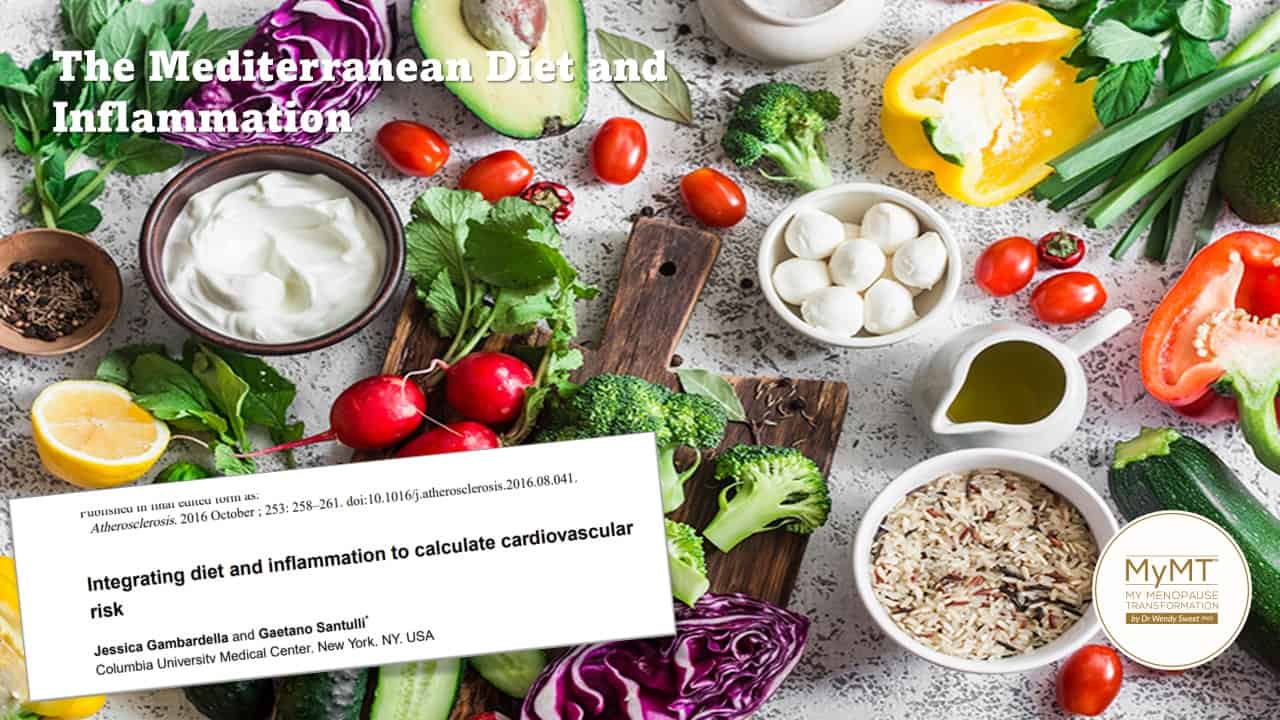
3. Have you experienced a lot of stress in the past? This includes physical stress from lots of exercise, emotional stress, workplace stress, family stress. Reflect on all the sources of stress over your lifetime and consider, if you have arrived in menopause, with exhausted adrenals. Because of this, are your adrenals already in overdrive and is it really hormone therapy and supplements you need, or a few massages and ways to manage your cortisol (over) production instead?
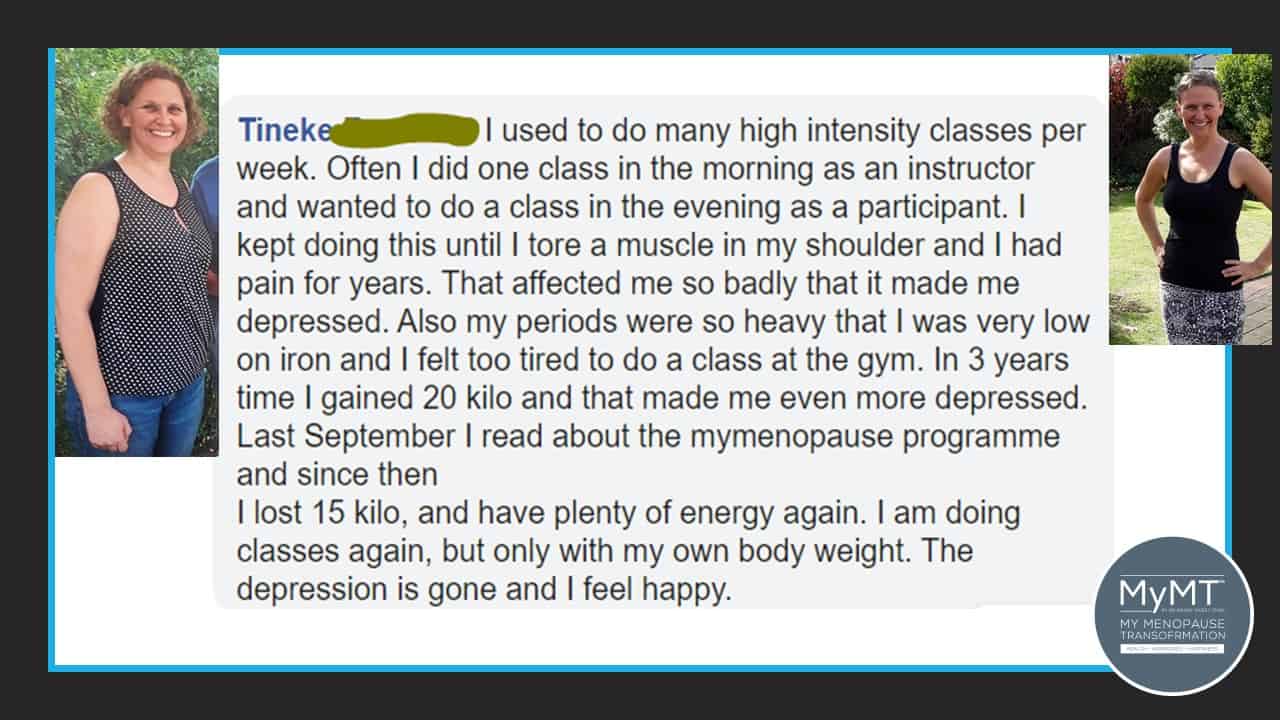
In the paper on ‘Normalising Menopause’ the authors contend that because social meanings and expectations commonly shape women’s actual experiences, there is an urgent need to advance the mainly biomedical paradigm about menopause. Celebrating the strength, beauty and achievements of older women can change the narrative too. This was an important aspect of my own experience, i.e. realising that there are cultural and geographical differences in women’s experiences of menopause and how they were ageing. I explain this in my online Masterclass on Menopause which you can read about HERE.
Whilst my focus with the MyMT™ programmes is to help women place their menopause symptoms and weight management in lifestyle solutions so that they do feel back in control of their mid-life health, I also encourage women to find what works best for them. When they do this, then this frees them up to celebrate midlife as a time of change, in more ways than one, so that we are prepared for the next 25-30 years of healthy living ahead!
Dr Wendy Sweet (PhD)/ MyMT™ Founder & Member: Australasian Society of Lifestyle Medicine.
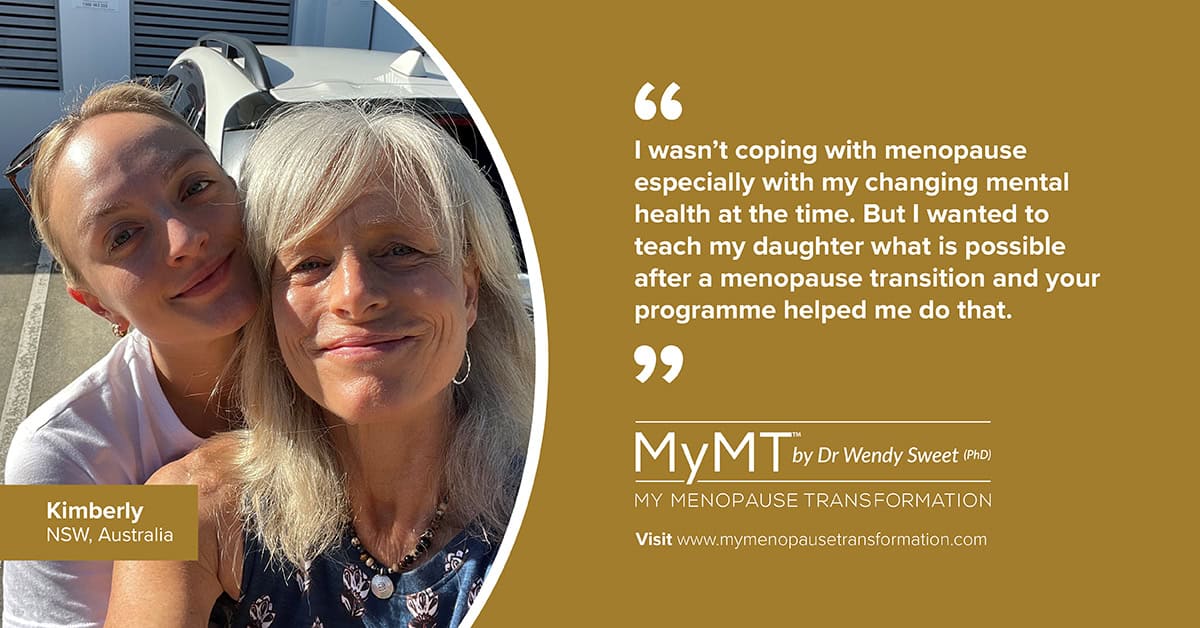
References:
Hickey, M., Hunter, M. Santoro, N. & Ussher, J. (2022). Normalising menopause. BMJ, 377 doi: https://doi.org/10.1136/bmj-2021-069369
Hunter, M. & Rendall, M. (2007). Bio-psycho-socio-cultural perspectives on menopause. Best Practice & Research Clinical Obstetrics & Gynaecology, 21(2), 261-274.
Lachman, M. (2001). Handbook of Midlife Development. John Wiley & Sons: Canada
McCarthy M, Raval AP. (2020). The peri-menopause in a woman’s life: a systemic inflammatory phase that enables later neurodegenerative disease. J Neuroinflammation. 17(1):317. doi: 10.1186/s12974-020-01998-9. PMID: 33097048;
Yiallouris, A., Tsioutis, C., Agapidaki, E., Zafeiri, M., Agouridis, A. P., Ntourakis, D., & Johnson, E. O. (2019). Adrenal Aging and Its Implications on Stress Responsiveness in Humans. Frontiers in endocrinology, 10, 54. https://doi.org/10.3389/fendo.2019.00054
